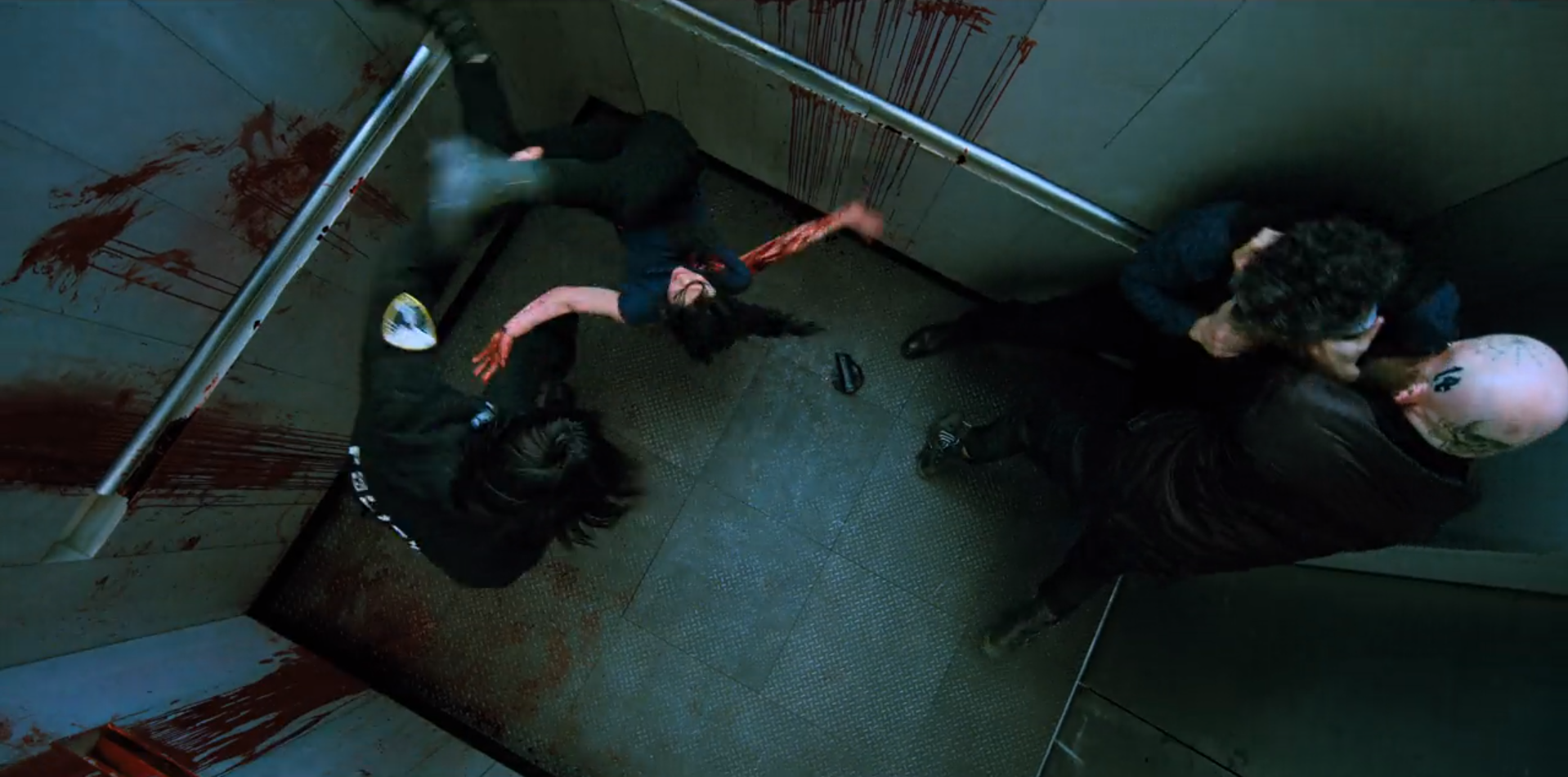K-SCORE: 78
Creator: Laeta Kalogridis
Based on: Altered Carbon by Richard K. Morgan
Starring: Joel Kinnaman, Martha Higareda, Dichen Lachman, James Purefoy, Renee Elise Goldsberry, Chris Connor, Ato Essandoh, Kristin Lehman, Trieu Tran, Byron Mann
Spoiler Level: Minor
I imagine that most people approaching the Netflix original series Altered Carbon did not read the novels, so I apologize if my review here is a little out of touch. My major complaints for the series have to do with the choices that they made that differ from my first foray into the premise with Richard K. Morgan’s books.
With more freedom and time at his disposal, Morgan does a far better job of exploring his sci-fi concepts than the show does. It doesn’t increase your book’s budget to throw in drug trips and digital realities and gravity-defying harnesses, but it does affect your show’s budget. So the book is more exciting for those who can use their imagination to wrap their minds around it. Yet the series still looks great. It’s fun to watch, and all ten of its episodes feel like they were made with the same production standards as a big box office film. But the best part of either Altered Carbon is the premise - these stacks and sleeves and how a person’s mind and soul can be digitally transferred around, and how they connect with a much larger and much more complex sci-fi universe. The show feels small by comparison to the novel, and the ways that it explores the base premise minimized. There are certainly times when the show blows you away with this idea like when the “dead” grandmother of Ortega is uploaded into the body of a tattooed gangbanging meathead, and sweetly eats dinner with her estranged loved ones, or, the best scene, when Ortega battles a dozen, constantly resleeved Reileens. Yet even that is nothing compared to the five hundred different ideas that Morgan had about this idea of stacks and sleeves.
The show fixes a problem that makes the novel significantly worse, however. In the novel, the character conflicts are very difficult to track because twists relate to obscure pieces of background information that are easily forgotten and motivations for certain characters that were minor on page fifty drive major actions on page five-hundred. The way this is cured is by reducing cast and consolidating characters into ones that are obviously relevant. Rei is not Takeshi’s sister in the book, and Quell is a philosopher, writer, and mystery, not a character and definitely not Takeshi’s former lover. Rei is not intimately connected with the envoys in the novels. The Elliots are more of a device in a larger mystery in the books than they are important pieces of Takeshi’s modern life, and they’re definitely not sidekicks. So the show’s story is easier to follow, even if it’s still convoluted. This “fix” though, does have a bad side-effect, which is that the show’s tone is very different and not in a good way. All these past connections and new relationships turn Takeshi from the loner, expert soldier and private investigator into a hero driven by a strong sense of ethics and the people he loves. Nope! That’s not ideal. Takeshi being a noir, near-heartless, violent man embittered by the galaxy he’s experienced is a massive part of what makes the cyberpunk concepts work.
The worst problem that the show has, however, is the actors. They need voice coaches. The concepts explored and specific locations and technologies that are essential to understanding the plot are challenging. Who wants to add to this challenge the issue that it’s physically difficult to hear the dialogue because three quarters of the main actors have a strong tendency to mumble their lines. The guy who plays Takeshi (in the Ryker sleeve) is the second worst offender, and it’s not like Takeshi is particularly verbose and open to begin with, so those few tidbits of information he gives are really important. The actress who plays Ortega is not a native English speaker. It shows. Her Spanish lines are great and her sex scene is exceptionally well delivered, but, again, a voice coach would have gone a long way. Or perhaps just a volume adjustment that increases the sound for the dialogue and decreases ambient noise, effects, and music. I often tweak such things when I play video games, but Netflix does not present me with a wide variety of audio options. The actor they got to play Asian Takeshi, the one in his original body, is good, and, if they continue the series for another season or two, I hope he has a prominent role.
For the most part, despite the changes and a few hiccups, Altered Carbon the show delivers. The things that make the idea appealing at the beginning are satisfying as you watch and more than enough to keep you coming back for more episodes. It’s different from the novel, if you read that, but both are flawed in different ways, so it’s hard to fault it purely on the grounds that it’s a not-entirely faithful adaptation. And there’s a few scenes in elevators that stand atop the great hierarchy of elevator moments in cinema - better than the Lost in Translation scene with Bill Murray being a head taller than all the Japanese men, better than the Captain America: Winter Soldier moment where he beats up the corrupt SHIELD guys, on par with the Die Hard message being sent down for Alan Rickman’s flawless delivery, though not as good as the Inception scene where JGL has to move his whole crew into an elevator in zero gravity.



